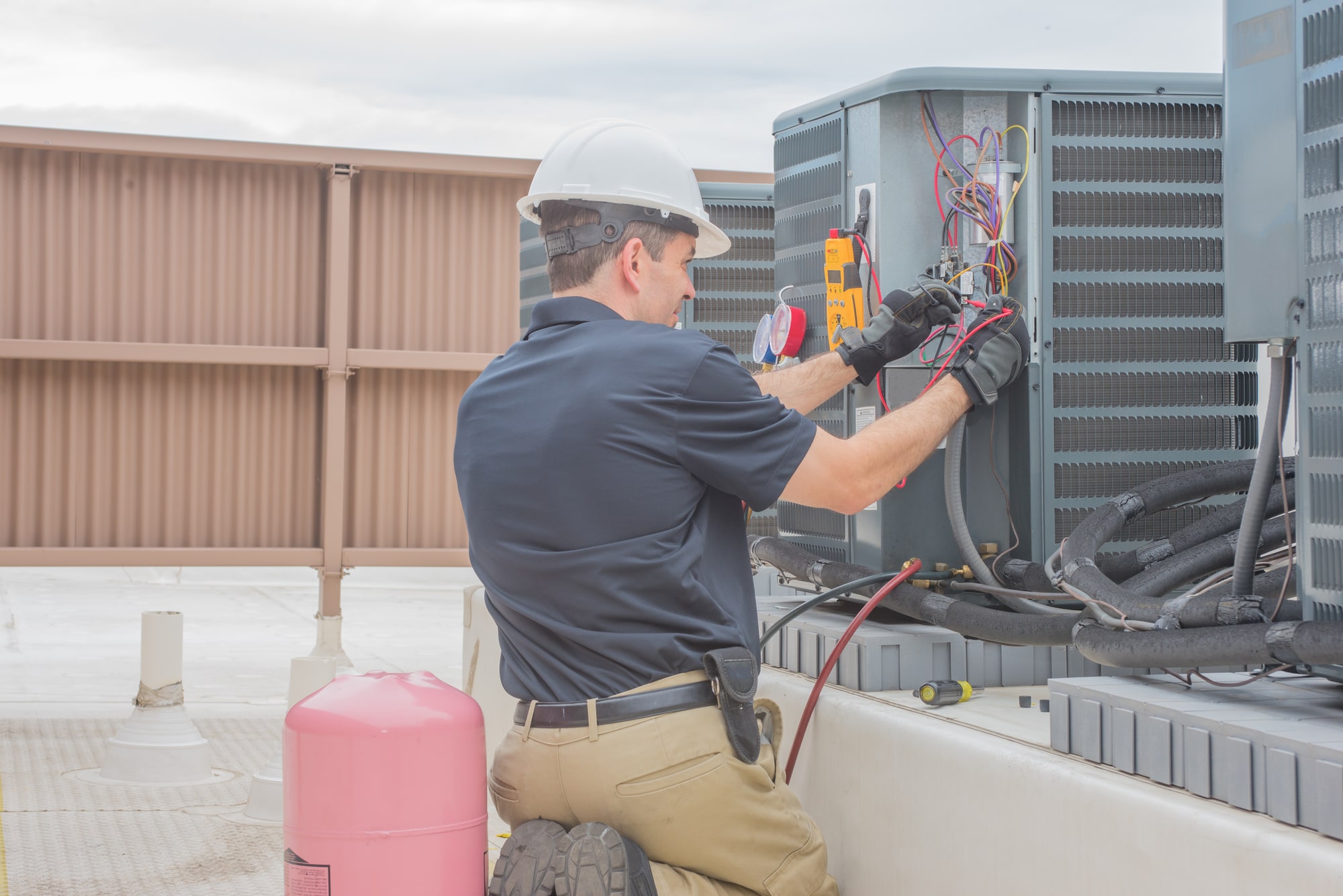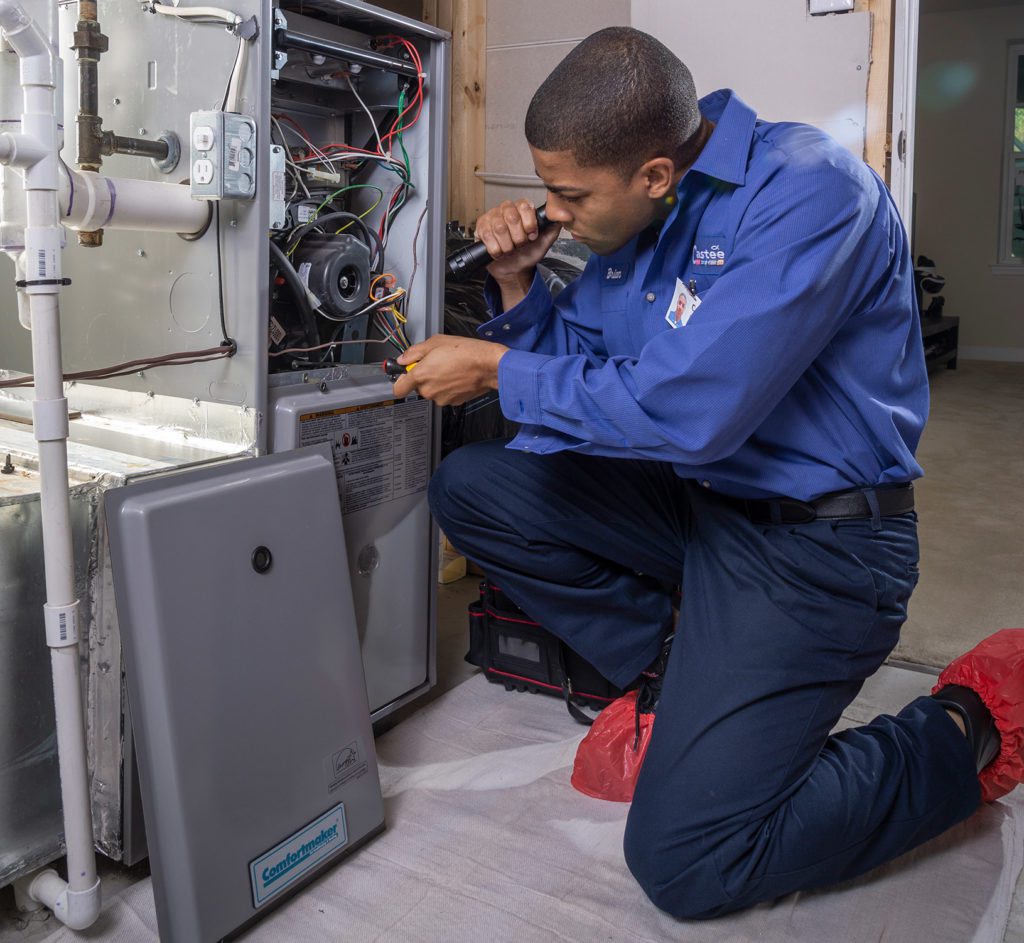When to Ask For Emergency AC Service Brownwood TX: What You Required to Know
When to Ask For Emergency AC Service Brownwood TX: What You Required to Know
Blog Article
The Significance of HVAC Setup: Trick Factors To Consider for a Comfortable Indoor Setting
The setup of an a/c system is a crucial part in achieving a comfy and energy-efficient indoor environment. The procedure involves several nuanced considerations that go beyond merely picking a system off the shelf. Variables such as the viability of the system for specific building needs, right sizing to prevent ineffectiveness, and the knowledge of professionals for a top quality setup play critical duties. Furthermore, the fostering of advanced innovations can significantly improve system efficiency. Understanding these intricacies is just the beginning of ensuring optimum interior convenience. What are the critical components that determine effective HVAC application?
Selecting the Right System

When selecting an a/c system, it is critical to assess the capability required to successfully heat or cool down the space without exhausting the system, which can lead to boosted wear and functional costs. Consulting with a professional a/c specialist can give important insights right into picking a system that lines up with both the anticipated usage and the architectural layout patterns of the structure.
Additionally, considering the combination of smart modern technology can improve system administration and tracking, providing greater control and potential expense financial savings. By thoroughly analyzing these factors, one can guarantee the option of a HVAC system that not only meets prompt demands yet likewise contributes to long-lasting operational sustainability and resident comfort.
Comprehending Power Performance
Recognizing power efficiency is important when considering a heating and cooling setup, as it directly affects both the ecological footprint and the operational expenses of the system. High-efficiency a/c systems are developed to make use of much less power to accomplish the exact same degree of convenience as less effective models, thus reducing utility expenses and advertising sustainability. The effectiveness of a HVAC system is generally indicated by ratings such as SEER (Seasonal Power Performance Ratio) for air conditioning unit or AFUE (Annual Gas Use Efficiency) for heaters. Greater ratings symbolize greater effectiveness and reduced power usage.

Purchasing an energy-efficient a/c system not just converts to cost savings but additionally adds favorably to environmental conservation by reducing greenhouse gas discharges. Additionally, many territories provide motivations or rebates for the installment of high-efficiency systems, better improving their economic charm.
When assessing power efficiency, consider innovative features such as variable rate motors, wise thermostats, and zoning capabilities. These developments boost the system's ability to adapt to differing need, therefore maximizing power usage. It is essential to speak with cooling and heating specialists that can provide insights right into the very best choices customized to particular climate problems and use patterns, making sure optimal effectiveness and comfort.
Significance of Correct Sizing

On the other hand, an undersized HVAC system will certainly have a government hvac contracts hard time to get to the hvac companies in usa preferred temperature level, specifically throughout severe weather. This can lead to constant procedure, resulting in higher power prices and potential getting too hot of system components. Additionally, poor sizing can bring about inconsistent temperature circulation, creating specific areas of a building to be too great or also warm.
To attain the appropriate sizing, a detailed lots calculation is vital. This entails examining numerous aspects such as the building's square video footage, insulation levels, home window types, and local climate conditions. By accurately determining the home heating and cooling down requirements of an area, heating and cooling experts can recommend systems that make certain efficient operation, minimized energy intake, and improved indoor comfort.

Ensuring High Quality Installation
A smooth A/c installation is the foundation of a system's durability and efficiency. This expert should have comprehensive expertise of varied systems and be skilled at assessing the certain requirements of the building.
Appropriate setup exceeds mere placement of tools. It includes precise calibration to make sure optimal airflow, reliable power intake, and consistent temperature circulation. This includes accurate ductwork installment, guaranteeing connections are secure and leak-free, which is crucial for keeping system efficiency and interior air high quality.
Furthermore, the implementation of advanced diagnostic tools throughout installment can find prospective concerns early, avoiding pricey repairs and prolonging the lifespan of the system. The professional should also make sure that all parts are suitable which the system adheres to regional building regulations and laws.
Normal Upkeep Practices
Once the structure for a high-performing a/c system is developed via top quality setup, the emphasis should change to routine maintenance techniques to ensure continued efficiency and integrity. Regular upkeep not just extends the lifespan of the system however also enhances interior air quality, decreases energy intake, and avoids pricey repair services. Crucial upkeep tasks consist of consistently transforming air filters, cleaning evaporator and condenser coils, and inspecting the system for obstructions or leakages.
This easy job can substantially boost air circulation and system performance. Furthermore, professional specialists should examine the system yearly, inspecting for refrigerant degrees, electric connections, and general system performance.
Attention to ductwork is also critical; securing and cleaning up air ducts on a regular basis avoids air loss and contamination. Implementing a maintenance routine makes sure that minor concerns are resolved before they escalate, safeguarding the system's functional integrity. By sticking to these maintenance methods, property owners can maximize their heating and cooling system's performance and preserve a comfy indoor atmosphere year-round.
Verdict
By image source selecting an appropriate system tailored to details structure requirements, understanding energy efficiency, and making sure proper sizing, inefficiencies can be decreased. The participation of knowledgeable service providers guarantees quality setup, while the assimilation of advanced innovations improves system efficiency and tracking.
Numerous types of Heating and cooling systems are offered, consisting of split systems, hybrid systems, duct-free systems, and packaged home heating and air systems, each with distinct benefits and restrictions.
Understanding power effectiveness is important when taking into consideration a HVAC installation, as it directly impacts both the environmental impact and the functional expenses of the system. The performance of a HVAC system is normally shown by scores such as SEER (Seasonal Energy Performance Ratio) for air conditioners or AFUE (Annual Fuel Utilization Effectiveness) for furnaces (Plumber in Brownwood TX).When the foundation for a high-performing Heating and cooling system is established with quality setup, the emphasis must move to routine maintenance methods to ensure continued performance and integrity. Additionally, professional technicians ought to check the system annually, examining for cooling agent degrees, electrical connections, and overall system efficiency
Report this page